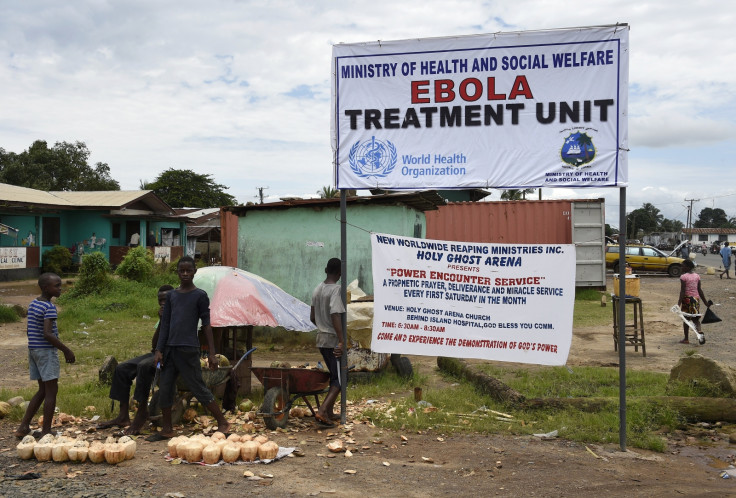I Can Cure Ebola with Vimto, Claims Liberian Bishop

A Catholic bishop in Liberia claims to have found the cure for the deadly Ebola virus – and it involves several bottles of fruity soft drink Vimto.
Edward Adjei says the outbreak is due to the burnt-out old presidential palace that stands on a hill in the capital city Monrovia. The building, once the seat of power of warlord Charles Taylor who was accused of practising witchcraft during the country's brutal civil war, mysteriously caught fire during independence celebrations in 2006 and is now widely believed to be cursed.
Adjei is just one of a number of independent clergymen who believe the "demons" lurking in the palace must be banished if Ebola is to be defeated. And the key is Vimto, he claims, which is far cheaper than communion wine.
He says the ceremony should take place during a three-day prayer session which would also involve a ceremonial scattering of the "blood of Christ" around the building.
"Communion wine is rather expensive, so we use Vimto instead", Adjei says in a documentary by Will Wintercross for The Telegraph, while brandishing a purple bottle of the drink from the store in his vestry.
"We use it for consecrations here in Liberia all the time, such as in houses and pieces of land where evil acts were committed during the civil war."
The perception that the Ebola outbreak has something to do with black magic or witchcraft is surprisingly common in west Africa. Health chiefs in the region are working to reduce the spread of this misinformation and say that people who blame the virus on the supernatural are less likely to seek help if they become infected.
Adjei vehemently believes that any illness with no known cure is almost certain to involve "Satan's hand" in some way, though he also states he has faith in the more medical-based methods of fighting Ebola, which has now claimed over 3,000 lives in the region – nearly half of them in Liberia.
© Copyright IBTimes 2025. All rights reserved.



















